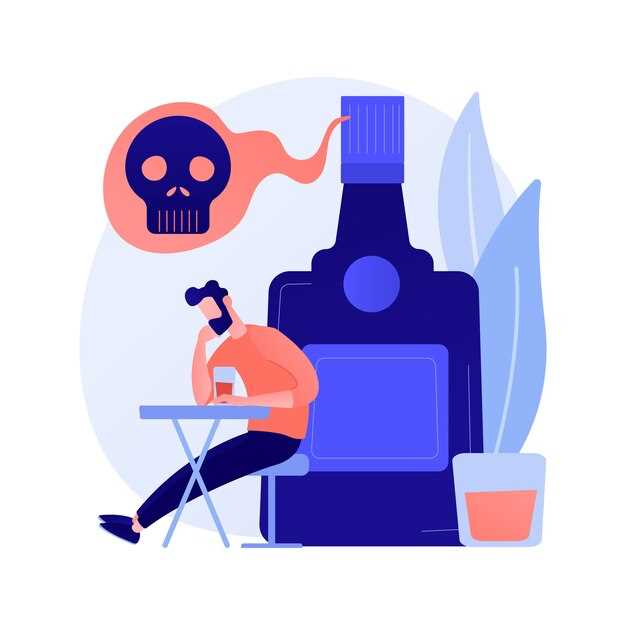
If you’ve been searching for an effective way to combat feelings of unease and tension, we have a groundbreaking solution that could change your life. Introducing our revolutionary product that combines the benefits of soothing herbal ingredients with advanced scientific research.
Uncover a sense of tranquility as you explore our unique formula designed to address the challenges associated with restlessness and emotional strain. Our innovative approach harnesses the power of nature to help you find inner calm and peace.
Experience a refreshing blend of nurturing compounds that work synergistically to promote relaxation. Our product gently supports your body’s natural processes, aiding in relieving feelings of uneasiness and promoting a serene state of mind, without the need for harmful chemicals or prescribed medications.
Unlock a brighter future as you regain control over your emotional well-being. Don’t let stress and restlessness hold you back any longer. Embrace this natural solution and embark on a journey towards a more peaceful and balanced life.
Understanding the Relationship Between Stress and Drinking
In this section, we will delve into the complex relationship between stress and alcohol consumption, exploring the intricate web of emotions and behaviors that surround these two elements.
Stress, characterized by a variety of negative emotions and responses, affects individuals from all walks of life. When faced with stressors, such as work pressures, personal problems, or social anxieties, people often search for ways to alleviate their distress. It is during these times that individuals may turn to alcohol as a means of temporary relief.
The consumption of alcohol has long been recognized as a means to dampen the physical and psychological manifestations of stress. While alcohol may initially provide a sense of relaxation and euphoria, these effects are often short-lived. In reality, the use of alcohol to cope with stress can lead to a vicious cycle, as excessive drinking can exacerbate feelings of anxiety and contribute to a decline in mental well-being.
However, there is hope. Research has shown that specific medications, such as Propranolol, can help individuals break free from this destructive cycle and embrace a more balanced and fulfilling life. By targeting the physiological effects of stress, Propranolol offers a unique pathway to manage anxiety and reduce the desire to turn to alcohol as a coping mechanism.
- Learn about Propranolol’s mechanism of action and the ways it can positively impact stress levels
- Explore success stories from individuals who have experienced the benefits of Propranolol
- Understand the role of Propranolol in breaking the link between anxiety and alcohol use
By gaining a deeper understanding of the relationship between stress, anxiety, and alcohol use, you can take the first step towards reclaiming control over your mental well-being. Let Propranolol be your ally in this journey towards a more harmonious life.
The Benefits of using Propranolol
When it comes to managing certain conditions, such as excessive worry or unease, combined with the consumption of alcoholic beverages, many individuals seek effective solutions that can alleviate their symptoms and provide relief.
One potential remedy that has gained attention is the use of a medication called Propranolol. This medication offers several advantages for those dealing with anxiety and alcohol-related issues.
Propranolol has been found to curb the effects of nervousness and uneasiness, providing individuals with a sense of calm and tranquility. By targeting the underlying causes of anxiety and alcohol use, Propranolol helps restore a sense of balance and control.
Furthermore, Propranolol helps regulate heart rate and blood pressure, minimizing the physical symptoms associated with anxiety and alcohol consumption. This can result in a reduced feeling of restlessness and discomfort.
In addition to its direct effects on anxiety and alcohol use, Propranolol also plays a role in promoting overall mental well-being and stability. By reducing the impact of anxiety and alcohol on cognitive functions, individuals may experience enhanced focus, clarity, and emotional resilience.
It is important to note that Propranolol is just one piece of the puzzle when it comes to managing anxiety and alcohol use. It should be used in conjunction with other therapeutic approaches, such as counseling or support groups, to achieve comprehensive and sustainable results.
Before incorporating Propranolol into your treatment plan, it is essential to consult with a qualified healthcare professional who can assess your specific needs and provide appropriate guidance.
How Propranolol Enhances Management of Symptoms Related to Anxiety and Alcohol Consumption
Within this section, we aim to explore the benefits of utilizing a medication that promotes the effective control and reduction of symptoms associated with both anxiety and alcohol use. By understanding how propranolol aids in mitigating the physiological and psychological effects linked to these conditions, individuals can better comprehend its potential usage in managing their overall well-being.
Stabilizing Physical Responses
Propranolol intends to assist in stabilizing and regulating the physical responses encountered during instances of heightened stress and a discouraging relationship with alcohol. Through its beneficial effects on the body’s cardiovascular system, this medication aids in promoting a more controlled heart rate, reducing the intensity of palpitations and tremors, while fostering an overall sense of calmness and relaxation.
Supporting Cognitive Well-being
Moreover, propranolol can significantly contribute to cognitive well-being by targeting certain mechanisms in the brain. By modulating neurotransmitters, this medication promotes improved mental clarity and focus, assisting individuals in coping with heightened states of anxiety or stress commonly associated with alcohol consumption. By supporting healthier cognitive functioning, propranolol contributes to better decision-making skills, increased self-awareness, and enhanced emotional stability.
By incorporating propranolol into a comprehensive approach to managing anxiety and alcohol use, individuals may experience a significant reduction in the negative emotional and physiological consequences often affiliated with these conditions. However, it is essential to consult a healthcare professional to determine the appropriate usage and dosage guidelines for an individual’s specific needs, considering factors such as their medical history and overall health condition.
While propranolol may offer substantial benefits in this context, it is worth noting that, as with any medication, potential side effects may occur. Prioritizing open communication with healthcare providers helps to address any concerns or possible interactions with other medications or underlying health conditions.
Usage and Dosage Guidelines
When it comes to taking this medication, it is important to follow the recommended usage and dosage guidelines. By adhering to these guidelines, you can ensure the effectiveness and safety of your treatment.
Dosage Recommendations
The dosage of this medication may vary depending on the individual’s needs and the severity of their condition. It is advised to consult with a healthcare professional who will determine the appropriate dosage for you. They will take into consideration your specific circumstances and medical history.
The starting dosage is typically low and may be gradually increased over time. This allows your body to adjust to the medication and minimizes the risk of any potential side effects. It is crucial not to alter the dosage without consulting your healthcare provider.
Administration

This medication is usually taken orally, with or without food, as directed by your healthcare professional. It is important to take it consistently at the same time each day to maintain a steady level of the medication in your system.
It is advised to avoid crushing, chewing, or breaking the tablets. Instead, swallow them whole with a glass of water.
Duration of Treatment
The duration of treatment may vary depending on the individual’s response to the medication and the nature of their condition. It is important to follow the prescribed treatment plan and not discontinue the medication abruptly without the guidance of your healthcare professional.
It is recommended to attend regular follow-up appointments with your healthcare provider to assess the effectiveness of the medication and make any necessary adjustments to your treatment plan.
Missed Dose
If you forget to take a dose, it is important to take it as soon as you remember. However, if it is close to the time for your next scheduled dose, skip the missed dose and continue with your regular dosing schedule. Do not double the dose to make up for the missed one.
Table of Dosage Guidelines
| Indication | Dosage |
|---|---|
| Mild to Moderate Anxiety | Starting dose: 20 mg per day, can be increased to 40 mg per day if needed |
| Severe Anxiety | Starting dose: 40 mg per day, can be increased to 80 mg per day if needed |
| Prevention of Migraines | Starting dose: 40 mg per day, can be increased to 80 mg per day if needed |
Note: The dosage guidelines provided above are for informational purposes only. It is important to consult with your healthcare professional for personalized dosage recommendations.
Potential Side Effects

When considering the use of this medication, it’s important to be aware of the potential side effects that may occur. These effects can vary from person to person, and it’s essential to understand them before starting any treatment regimen.
1. Adverse Reactions
Some individuals may experience adverse reactions while taking this medication, which can include dizziness, fatigue, or a decrease in blood pressure. It’s essential to monitor how your body responds to the medication and consult a healthcare professional if any severe reactions occur.
2. Digestive Issues
In some cases, individuals may experience digestive issues such as nausea, vomiting, or stomach discomfort. If these symptoms persist or become severe, it is recommended to seek medical advice.
3. Sleep Disturbances
Sleep disturbances, including changes in sleep patterns or difficulty falling asleep, may occur as a side effect of this medication. If you experience any sleep-related issues or disruptions, it is advisable to discuss them with your healthcare provider.
4. Skin Reactions
Occasionally, individuals may experience skin reactions while using this medication. These reactions can range from mild rashes or itching to more severe conditions. If you notice any skin changes or allergic reactions, it is recommended to discontinue use and seek medical attention.
5. Other Considerations
It’s important to note that the list above is not exhaustive, and there may be additional side effects associated with this medication. Always consult with your healthcare provider for a comprehensive understanding of potential risks and benefits before starting any treatment.
